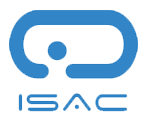
Why We Need Mud Teams in Cybersecurity
Cybersecurity has become one of the most stressful professions globally, with over 80% of Chief Information Security Officers (CISOs) reporting high stress levels, according to the 2024 CISO Burnout Report (CISO Burnout Report 2024). The role demands navigating complex technical challenges, securing sufficient budgets, managing talent shortages, and translating technical risks into business impacts—all while defending against an endless stream of cyber threats.
This constant pressure has led to burnout, compromised decision-making, and high turnover rates, with 46% of CISOs staying in their roles for only two years or less. Amid these challenges, there is a growing recognition that cybersecurity professionals need new ways to decompress and reconnect. Enter the Mud Team, a creative and much-needed reprieve from the unrelenting demands of cybersecurity.
Cybersecurity’s Stress Dilemma
Before we dive into the mud (pun intended), let’s take a moment to understand why cybersecurity is so stressful. The stakes are high—professionals in this field are tasked with safeguarding sensitive data, protecting critical systems, and staying vigilant against an ever-evolving wave of threats. Add to that the constant learning curve, sleepless nights, and the weight of responsibility, and you’ve got a recipe for burnout.
What’s often missing in cybersecurity is a chance to pause, reconnect, and approach problems with fresh energy. That’s where the Mud Team comes in.
The Birth of the Mud Team
The Mud Team is a light-hearted yet meaningful concept introduced as part of the National Cyber Security Scholar Program (NCSSP). Scholars participating in this program spend a portion of their time at a special wellness retreat where cybersecurity meets self-care. Among yoga sessions, mindfulness exercises, and discussions on advanced topics like AI in cybersecurity, scholars are invited to take part in something truly unique: mud baths.
During the Mud Team activity, scholars sit together in therapeutic mud baths and discuss key cybersecurity challenges. Imagine a group of CISOs and security analysts debating zero-trust architecture while covered head to toe in mineral-rich mud. The setting is relaxed, the conversation is candid, and the laughter is inevitable.
Why Mud Teams Make Sense
The Mud Team isn’t just a quirky gimmick—it’s a response to the very real need for balance in an industry that’s always on high alert. Here’s why the concept works:
- Stress Relief: Mud baths are known for their therapeutic benefits, promoting relaxation and improving mental clarity. When cybersecurity professionals step away from their screens and into the mud, it gives them a chance to decompress.
- Breaking Down Barriers: In a mud bath, everyone is equal. Titles and roles melt away (along with the mud), creating an open space for collaboration and creative thinking.
- Building Connections: Shared experiences—especially unusual ones like this—are powerful. The Mud Team creates bonds that last long after the mud has been washed off.
- Fostering Creativity: Discussing cybersecurity challenges in an unconventional setting can spark fresh ideas. The relaxed environment encourages out-of-the-box thinking, which is often the key to solving complex problems.
A Lighthearted Solution to a Serious Problem
Cybersecurity is serious business, but that doesn’t mean we always have to take ourselves so seriously. The Mud Team activity reminds us that it’s okay to laugh, to relax, and to approach challenges with a sense of humor. After all, creativity and collaboration thrive when people feel comfortable and connected.
The Mud Team reflects a growing recognition that cybersecurity professionals need more than technical skills to thrive. They need spaces to decompress, build relationships, and reignite their passion for the field. While not every organization can host mud baths, the principle behind the Mud Team—blending wellness with work—can be adapted in many ways.

Whether it’s through team-building retreats, mindfulness sessions, or simply encouraging open dialogue, the takeaway is clear: taking care of cybersecurity professionals is as important as taking care of the systems they protect.
Why Every Cybersecurity Professional Should Join the Mud Team
While the Mud Team is currently part of the NCSSP, it’s a concept that could benefit the entire cybersecurity community. It’s a reminder to pause, breathe, and reconnect with the human side of cybersecurity. Because at the end of the day, even the best firewalls and algorithms can’t replace the creativity, intuition, and resilience of the people behind them.
Join the next cohort of NCSSP and become part of the prestigious Alumni of the ISAC Foundation.
